Necessary Discomfort: Conversations about Hate (2022)
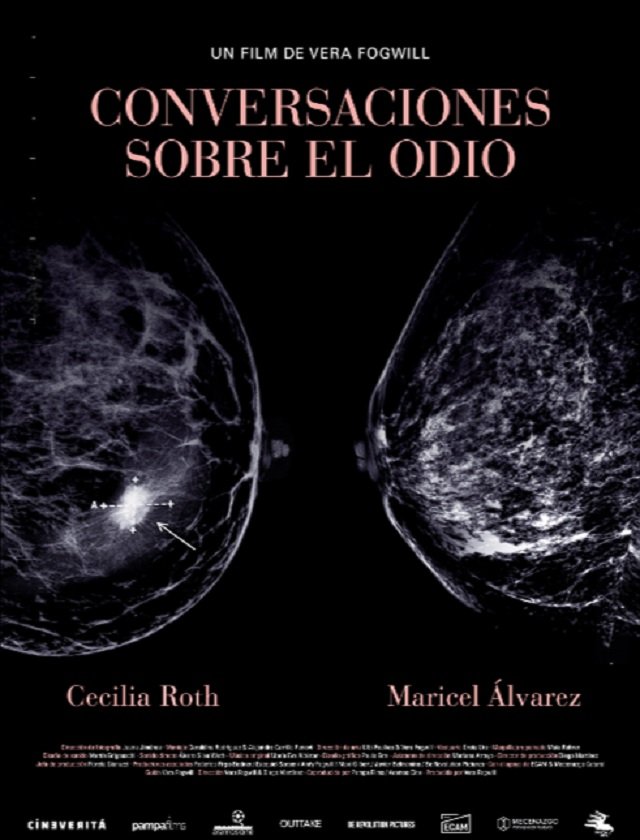

Cutting our losses and moving on is what many people do to get out of a toxic and/or harmful environment. But there are times when we have to face that reality in order to truly heal and forgive, or at least that is the goal. From Argentina comes a story that could be taken as ordinary or commonplace, but Conversaciones Sobre el Odio, under the direction of Vera Fogwill, goes a little further. Although I must confess that while I was watching it, it didn't generate much discomfort, both for the visual part and for the dialogues, but this psychological thriller was created for that, to bother you to such an extent that you think you are wasting your time; but I assure you that when you finish and analyse everything that happened, you are going to stare at the ceiling for a long time while questioning a lot of things and reproaching yourself for others. Here I give a negative point, because this is the third Argentinian film I've seen that starts exactly the same way: the lights go out in the neighbourhood at night. I understand the message, but at least let it vary a little in form, a little more creativity. I thought it would be just as bad as the other two, but I still gave it a chance.

Cortar por lo sano y avanzar, es lo que muchas personas hacen para salirse de algún entorno tóxico y/o dañino. Pero hay veces en que tenemos que enfrentarnos a esa realidad para poder sanar de verdad y perdonar, o al menos esa es el objetivo. Desde Argentina nos llega una historia que podría ser tomada como ordinaria o común, pero Conversaciones Sobre el Odio, bajo la dirección de Vera Fogwill, va un poco más allá. Aunque debo confesar que mientras la veía no generaba mucha incomodidad, tanto por la parte visual como por los diálogos, pero este thriller psicológico fue creado para eso, molestarte a tal punto que pienses que estás perdiendo el tiempo; pero les aseguro que al terminar y analizar todo lo que pasó, van a quedarse viendo al techo un buen rato mientras se cuestionan un montón de cosas y reprochándose otras. Aquí doy un punto negativo, porque esta es la tercera película argentina que veo que comienza exactamente igual: se va la luz en el barrio en la noche. Entiendo el mensaje, pero que al menos varíe un poco la forma, un poquito más de creatividad. Ya desde ahí pensé que sería igual de mala que las otras dos, pero igual le di una oportunidad.

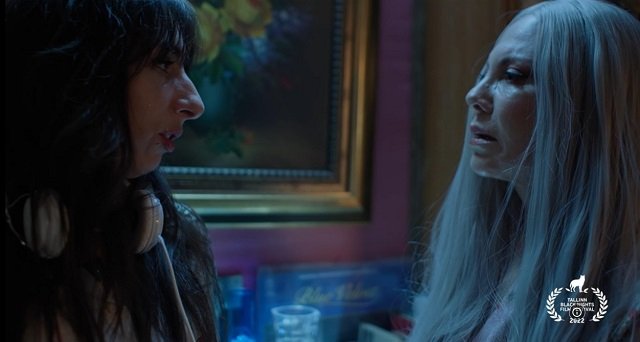

A visit.
Déborah (Marisel Álvarez) visits an old friend, also called Débora (Cecilia Roth).The latter is suffering from terminal cancer, although she says nothing about the seriousness of her illness (the little time she has left); she is a talent agent and psychologist, a super-proud, stubborn, manipulative, ill-tempered woman, with a very different vision to that of her "friend". Deborah, on the other hand, is an actress, a mother, a bit submissive, although she can be forceful and doesn't consider Deborah her friend at all, so she doesn't make it very clear at the beginning what she is doing in her house.

Una visita.
Déborah (Marisel Álvarez) visita a una vieja amiga, también llamada Débora (Cecilia Roth). Esta última está pasando por un cáncer terminal, aunque no dice nada de la gravedad de su enfermedad (el poco tiempo que le queda); es una agente de talentos y psicóloga, es una mujer súper orgullosa, terca, manipuladora, malgeniada, con una visión muy distinta a la de su “amiga”. En cambio, Déborah es una actriz, es madre, es un poco sumisa, aunque puede llegar a ser contundente y para nada sigue considerando a Débora su amiga, así que no deja muy claro al principio qué hace en su casa entonces.

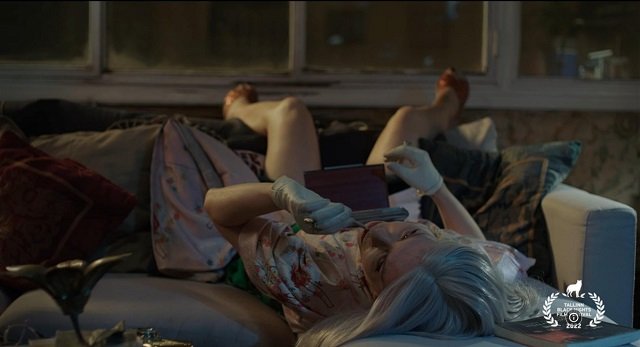

Distortion.
From the beginning we see Deborah very uncomfortable with the situation, with a sense of duality that she doesn't want to be there, but she has to. The conversation appears to be innocent, but Deborah manipulates everything and turns it on its head, it's all the fault of the others and her "friend", but it's been a long time coming and she "forgives", although she never stops pulling the wool over her eyes. Debora's flat is a total mess, full of cats everywhere, dirt, accumulated things, it's a mess where you can't even breathe because of all those smells, she even has an owl flying all over the place! Although she keeps mentioning how important, influential and wealthy she is, she is just a lonely woman who doesn't even look for someone to do her cleaning or find a nurse to take care of her and help her with her treatment at home. Even so, Deborah offers to clean up a bit while she is there, only to receive back a string of malicious reproaches that make her feel like she is on the floor. For Deborah, it's all good, but she keeps mentioning that she is still alone and has to remain strong, it's one manipulation after another.

Distorsión.
Desde el inicio vemos a Déborah muy incómoda por la situación, con una sensación de dualidad de que no quiere estar allí, pero tiene que hacerlo. La conversación parece ser inocente, pero Débora manipula todo y la voltea a su antojo, todo es culpa de los demás y su “amiga”, pero ya ha pasado mucho tiempo y “perdona”, aunque nunca deja de sacarle los trapos. El apartamento de Débora es un total desastre, lleno de gatos por todos lados, suciedad, cosas acumuladas, es un desastre en donde ni siquiera se puede respirar por todos esos olores encerrados, ¡hasta tiene una lechuza volando por todas partes! Aunque ella mencione a cada rato lo importante, lo influyente y adinerada que es, es simplemente una mujer sola que ni siquiera busca a alguien para que le haga la limpieza o buscar una enfermera que la cuide y la ayude con su tratamiento que sigue desde casa. Aun así, Déborah se ofrece a limpiar un poco mientras está allá, solo para recibir de vuelta una sarta de reproches malintencionados que la hacen sentir por el suelo. Para Débora, está bien todo, sin embargo, no deja de mencionar que sigue estando sola y tiene que seguir siendo fuerte, es una manipulación tras otra.

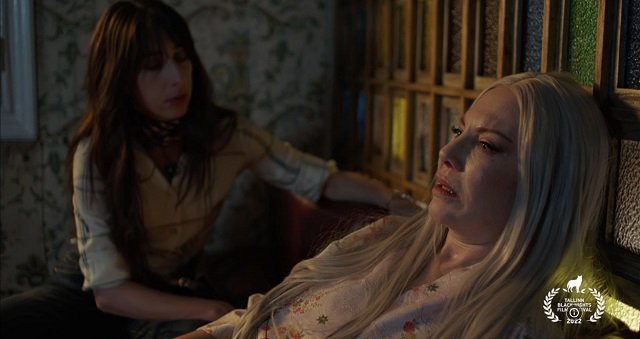

Parties to the blame.
While we can already take a position from the beginning, as Deborah represents a whole lot of toxicity, sweet Deborah also bears some of the consequences, even though it may be understandable, as a viewer, one puts oneself in her shoes. Deborah's heavy-handedness always criticises, mocks, judges and doesn't take anything Deborah does seriously, but she accepts and loves her because she is young and doesn't know what she is doing.
The whole film is a give and take between this pair, even we want to run away from this narrow space, but in the end we understand that it was necessary for Deborah to close this episode that she could not turn the page until that moment. Perhaps for many it may even seem silly to reopen that wound, but it is often necessary to face your tormentor in order to measure yourself, to confront him and finally close that cycle. Or, if there are those who are like Deborah, it takes a slap in the face of reality, to see if we can bend a little and accept everything that was done, to hit rock bottom... although in the end, she didn't have the opportunity to touch it because she died, and with her death she took with her all that Deborah had kept for so many years. We do need to have uncomfortable conversations, that we don't like at all, even if we feel that it won't take us anywhere, sometimes that which we swallow becomes a great weight; even if we have those imaginary scenes in which we emerge victorious with an apology from the other party, but that's like putting a band aid on a gunshot. Deborah deep down wanted redemption, even though she had an unhinged way of showing it, she knew she was alone because of her guilt; and Deborah needed to confront the insecurity and multiple traumas that her old friend generated in her. This story is not enjoyable at all, it is tedious, it is painful, it is cruel, it is heartbreaking, but this is life many times when we stagnate; here is where we measure ourselves and see if we present ourselves to the world as an unjust Deborah or a brave Deborah, it invites us to reflect and to introspect. So, if you ask me, I will answer as I always do: "If you haven't seen it, see it, and if you have seen it, see it again, you can't miss it at all".

Partes en la culpa.
Si bien ya podemos tomar una posición desde el comienzo, ya que Débora representa todo un monto de toxicidad, a la dulce Déborah también le recae un poco de las consecuencias, a pesar de que pueda ser entendible, uno como espectador, se pone en sus zapatos. La pesada de Débora siempre crítica, se burla, juzga y no toma en serio nada de lo que haga Déborah, pero la acepta y la quiere porque es joven y no sabe lo que hace.
Todo el film es un toma y dame entre este par, hasta nosotros queremos salir corriendo de ese estrecho espacio, pero al final es que entendemos que era necesario para Déborah para cerrar ese episodio del que no pudo pasar página hasta ese momento. Quizás para muchos se hasta algo tonto el volver abrir esa herida, pero en cierto que muchas veces es necesario tener en frente a tu verdugo para medirte a ti mismo, enfrentarlo y cerrar al fin ese ciclo. O, si hay quienes son como Débora, se necesita una cachetada de la realidad, para ver si podemos doblegarnos un poco y aceptar todo lo que se hizo, tocar fondo… aunque al final, ella no tuvo la oportunidad de tocarlo porque murió, y con su muerte se llevó todo eso que tuvo guardado tantos años Déborah. Sí necesitamos tener conversaciones incómodas, que no nos gusten para nada, aunque sintamos que no nos llevará a ningún lado, a veces eso que nos tragamos se convierte en un gran peso; así tengamos esas escenas imaginarias en la que salimos victoriosos con una disculpa de la contraparte, pero eso es como poner una bandita a un disparo. Débora muy en el fondo quería redención, aunque tenía una forma desquiciada de demostrarlo, sabía que estaba sola por su culpa; y Déborah necesitaba enfrentar la inseguridad y múltiples traumas que le generó su vieja amiga. Esta historia no se disfruta para nada, es tediosa, es dolorosa, es cruel, es desoladora, pero así es la vida muchas veces cuando nos estancamos; aquí es nos medimos a nosotros mismos y vemos si nos presentamos al mundo como una injusta Débora o una valiente Déborah, nos invita a reflexionar y a hacer introspección. Así que, si me lo preguntan, les responderé como siempre: “Si no la han viso, véanla, y si ya la vieron, vuélvanla a ver, no tiene perdida de nada.”

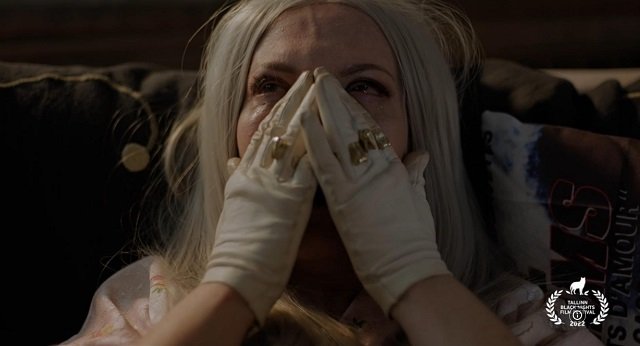

Thank you for coming here and reading me. | Gracias llegar hasta aquí y leerme.
🖤
Images taken from (Imágenes tomadas de) IMDb